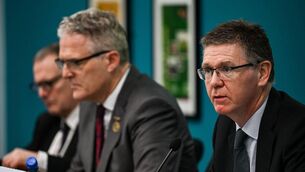Squad reduction ‘anti-player’ claims rejected
Competitions Review Task Force chairman Padraic Duffy insisted the restriction, which comes into force next January, is aimed at freeing up players to play with their clubs.
However, an angry Jarlath Burns, former chairman of the Players Committee, joined the chorus of criticism yesterday, labelling it as 'humiliating' to players.














